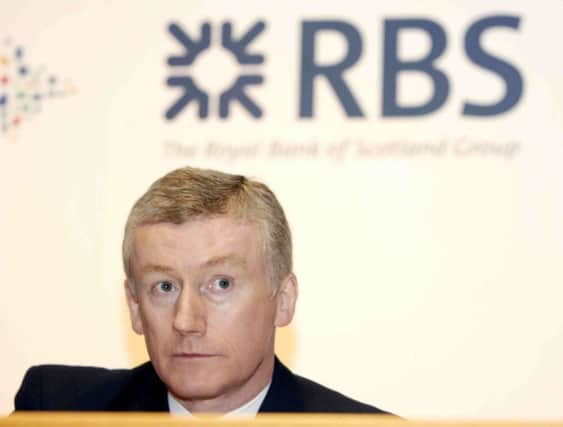Scotland could redefine banking


THE Scottish financial world is giving close scrutiny to the possibility of a vote for independence in September’s referendum, which is featuring prominently in its long term financial planning.
Without judging the merits of which way to vote, there seem to be some ways in which an independent Scottish Government following a Yes vote could help enhance the success of financial services businesses.
Advertisement
Hide AdAdvertisement
Hide AdThe first relates to the ongoing need for a mechanism to restore public confidence in, and the standing of, the banking sector – especially amongst commercial enterprises – rather than deepening the negativity.
The second is a clear commitment on the part of the Scottish Government that it cherishes our financial services sector.
The government of an independent Scotland could play a key part in redefining the essential cultural elements of banking, in a way that recognises the historic genius of Scots in this field. This would help demonstrate that lessons have indeed been learned.
It could promote a national standard or code of core principles to be adopted in all commercial banking transactions along the lines of the Equator Principles, an international standard of social and environmental impact in large-scale project developments. These are intended to provide a minimum standard for due diligence to support responsible risk decision-making.
What might these core banking principles cover? Well, my suggestion is the following legal commitments by commercial lenders: n Fair Dealing – an obligation to act reasonably in all circumstances in exercising their contractual rights. n Pricing Clarity – clearly identifiable fees and interest charges for all elements of a financing, with none of the add-ons that can potentially open the door to uncapped costs being imposed. n Supportive in Distress – working with the business customer when default looms, to allow them to find a solution before formally intervening. n Local Social Contribution – the tracking of local community benefit provided in the course of, or alongside, commercial lending activity, for example the number of jobs created or saved.
I have great sympathy for lenders. Theirs is an unequal bargaining position, weighted heavily in favour of the business customer once a loan is made. All that the lenders are left with is a piece of paper, conferring some rights, but their cash is spent, possibly never to be seen again.
Indeed, many lenders could fairly claim they are presently satisfying most of these core principles. Unfortunately, public perception is often driven by the relatively few difficult cases where a lender may have exercised its rights in ways which seem oppressive.
So, if an independent Scottish Government wanted to promote an objective standard of banking behaviour, and measure compliance with it, that could be a very effective way of demonstrating that our banks are indeed responsive to national sentiment. This would show that our banks, on the whole, provide a good service to businesses.
Advertisement
Hide AdAdvertisement
Hide AdOur financial services businesses are in the main operating from Scotland in a UK environment and selling retail products from here into the EU and the rest of the world. Some have voiced concerns that an independent Scotland could increase the costs of doing business in their home markets.
The present Scottish Government could make a difference here, by being very explicit about its proposed approach in the event of independence, perhaps even suggesting protections for financial services that could be elevated into a declaration of intent. There does already seem to be an approach from the Scottish Government of emphasising that much would stay as it currently is, for example in relation to currency or macroeconomic regulation.
Sector concerns go wider, however, even if this “business as usual” agenda could be delivered. The impact of differential tax rates and different tax collection mechanics in an independent Scotland could be more extensive than currently planned as a result of the extension of the devolution arrangements, though both Labour and Conservatives now appear ready to offer substantial changes on devolution of tax-raising powers.
An independent Scottish Government could submit itself to some enshrined overriding principles aimed at minimising any disruption and emphasising the strategic importance to Scotland of financial services.
It could commit to preserve, so far as is reasonably possible, the level playing field for financial services transactions between the parts of the current UK. There would be ongoing harmonised EU requirements, but a specific UK-focused objective would be a logical extension of the proposed approach to currency and regulation generally.
It could also commit to support, within available resources and legal constraints, the strengthening and expansion of the financial services sector in Scotland.
Some may think that setting out generalised principles would be worthless and impossible to monitor or enforce. But the development of general principles is at the heart of the Scottish legal tradition, almost uniquely in modern times, and should not be underestimated.
• Michael Stoneham is a partner in the banking team of Brodies LLP
SEE ALSO